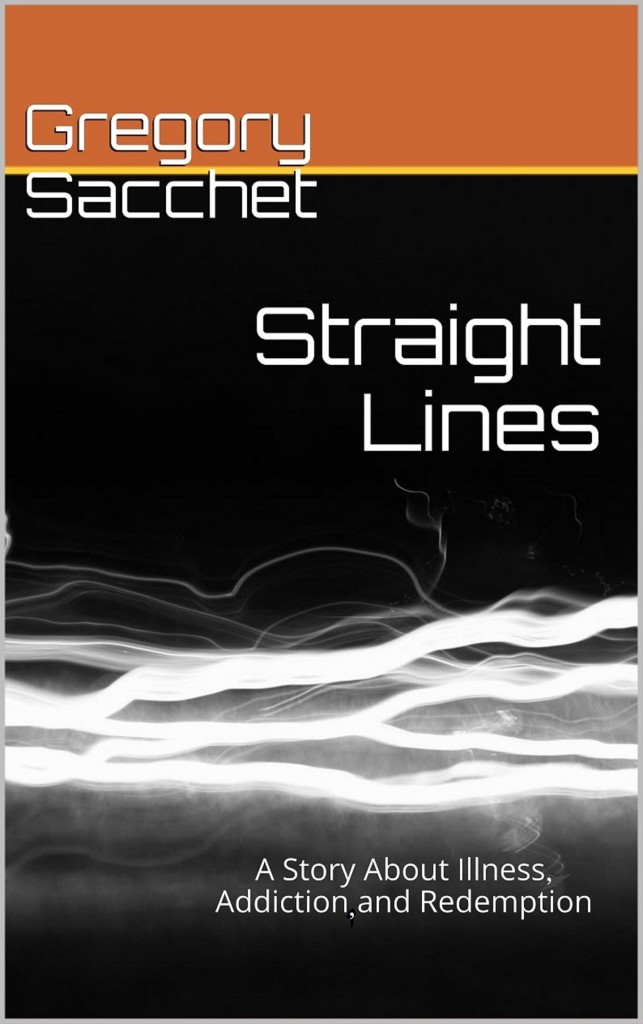
What makes Straight Lines such a unique and compelling read is that it is both an addiction memoir and a memoir of illness, as Sacchet suffers from Multiple Sclerosis. He also suffers from Tourette’s Syndrome. In this context, the addiction seems almost…understandable. While being tethered to a drug is not justifiable, it’s at least understandable when he’s trying to medicate an actual condition – both emotionally and physically. This is when Straight Lines is most riveting. The trouble is when it gets into the actual tale of addiction, it’s fairly by rote. Sacchet writes, “I also discovered that the best tool for snorting coke was a crisp, clean twenty-dollar bill.” Doing cocaine with a dollar note is not exactly surprising or enlightening behavior. He describes doing cocaine as “euphoric” without really elucidating what that euphoria entails.
There is a fair amount of telling, rather than showing, about the path he’s taking. In a way, an addiction memoir has to be addictive in itself – it’s necessary to feel what he’s feeling so you can take that ride along with him. He became an addict so you don’t have to. But if he’s merely calling the drug “euphoric,” it’s harder to relate. While Sacchet is a strong, clear writer, ironically there is a lack of highs and lows to allow the reader to really feel his story as deeply as he was feeling at the time.
The book comes alive when he is talking about his illness – MS is less familiar to the average reader, and Sacchet tends to write about his experience with the condition with less distance than he does with addiction:
Double vision would suddenly strike while driving the car, causing my brain to think there were twice as many cars in front of me than there actually were. I had to cover one eye in order to see traffic properly. My arms and legs would suddenly shake with tremors, and I would suffer imbalances while walking, which often caused me to fall. I was bowed down with bouts of unexplained dizziness….These episodes had no pattern. There were no warnings. There was no medication, only counseling.
This is harrowing and effective writing. Perhaps because cocaine numbed his feeling, he has less memory to express it, but the two sides of his story are not equally expressed.
Still, Sacchet has an amazing story to tell, and the writing is strong and self-assured. The ultimate message is an uplifting one – he’s overcome terrible odds and he’s on the other side with lessons learned. At times, even when it veers to the clinical, and with something as harrowing as illness and addiction combined, there seems more to the story than was put on the page. When it’s effective, there is a breeziness and intelligence to the writing that make much of Straight Lines moving and compelling, and therefore unique in the field of addiction memoirs.
Links
Amazon
Barnes & Noble
Smashwords
Review Overview
Editing
Design
Content
Get an Editorial Review | Get Amazon Sales & Reviews | Get Edited | Get Beta Readers | Enter the SPR Book Awards | Other Marketing Services






















Leave A Comment